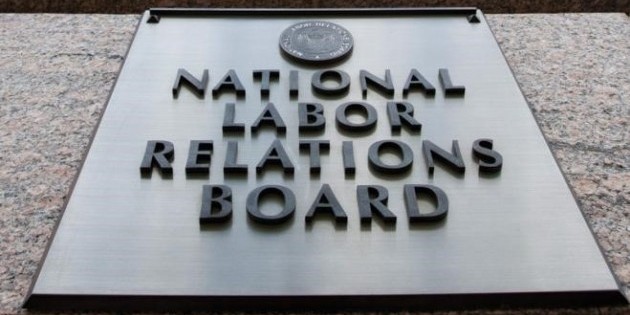Gary M. Wisenbaker, Valdosta Today Editorial Contributor
Get ready: computerized ordering at your favorite fast food chain is coming sooner than you think.
Clearing the way for the national unionization (or robotic replacement) of fast food employees, the National Labor Relations Board took a breathtaking move late last week to control nearly ten percent of the private output of the U.S. economy.
The NLRB, chaired by a former Democrat union lawyer, ruled that Browning-Ferris, Inc., a California waste recycling company, qualified as a “joint employer” of the employees of Leadpoint, an independent staffing contractor hired by BFI.
The decision up-ended the Reagan era rule that companies like BFI had to exercise “direct and immediate” control over independently contracted workers before they could be considered joint employers. Here, BFI exerted no such control.
Nonetheless, when union organizers moved to organize the Leadpoint employees they wanted BFI at the negotiating table.
And the union won.
Supporters of the change justify it by pointing out that the changing labor landscape, wherein more people seek autonomy in the manner and method of how they earn a living (think Uber, Lyft, and that guy the cable company sends to fix your wiring), warranted a change. When government seeks control, individualism and entrepreneurship just gets in the way.
Anyway, it’s no big deal, they continue, the NLRB has only returned to the pre-Reagan status quo. And what great days those were: double digit interest rates, gas lines, soaring unemployment, and negative economic growth.
The NLRB’s move is huge and has serious ramifications for the rule of law and the right to contract, particularly in the franchise industry. Take, for example, McDonald’s.
A common feature of the franchise contract is the sovereignty of the franchisee regarding facility and labor management. The franchisor enhances and protects brand and, perhaps, product quality. In short, the parties contractually split liabilities and responsibilities.
 The NLRB and the Service Employees International Union (SEIU), however, have been looking for a way to abrogate the McDonald’s (and other) franchise agreements in order to unionize thousands of franchisee employees and hold the McDonald’s parent company jointly liable for any franchisee labor law infractions, as cases presently pending before the NLRB allege. And the BFI ruling helps get them there.
The NLRB and the Service Employees International Union (SEIU), however, have been looking for a way to abrogate the McDonald’s (and other) franchise agreements in order to unionize thousands of franchisee employees and hold the McDonald’s parent company jointly liable for any franchisee labor law infractions, as cases presently pending before the NLRB allege. And the BFI ruling helps get them there.
The NLRB’s recent action affects much more than McDonald’s, however.
It is estimated that there are 3,000 franchise business companies which account for 850,000 business operations in the United States. They account for 8.5 million employees, approximately 50 percent of retail sales and generate over $2.1 trillion to the economy. That the NLRB’s decision will translate into fewer jobs is inconsequential.
And aside from greasing the wheels for unionization, there’s a monetary advantage here. Including franchisors and parent companies in charges for alleged national labor law violations by their franchisees and independent contractors gives the NLRB far deeper pockets for fines and penalties.
This could very well be a gift that keeps on giving.
The even greater advantage, however, is to Big Labor. Unless this ruling is arrested by the courts, organizing workers by the SEIU would be made vastly easier by allowing them to do so on the “joint employer” franchisor (national) level, rather than on a case by case (franchisee) level and, in the process, impose unionization on all employees unilaterally.
The right to make and enter private contracts is a cornerstone of a free market economy. Without any overriding public policy to the contrary, the courts have protected the rights of private parties to advance their own objectives and enforced contracts that did so.
The power of the NLRB has grown steadily over the years. This latest move demonstrates the NLRB’s contempt and disdain for entrepreneurism, the rule of law, and freedom of contract and, with that, an equal contempt and disdain for the Constitution.
And this must end.
In the meantime, you might do well investing in robotics.
Gary Wisenbaker (gary50155@gmail.com) is a public relations and political consultant.











